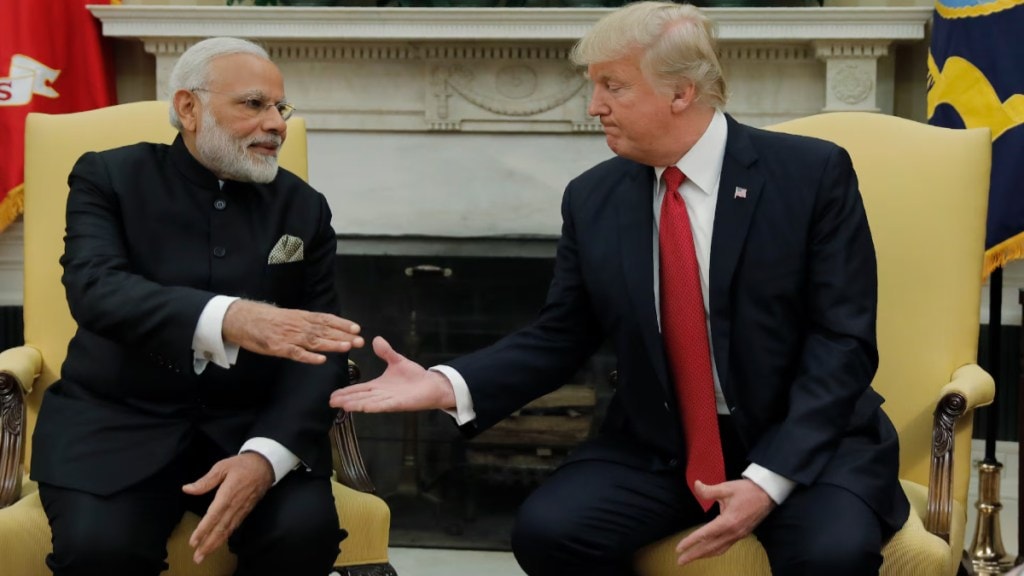Prime Minister Narendra Modi is not attending the virtual BRICS leaders’ summit on Monday, a meeting called by Brazil’s Luiz Inacio Lula da Silva to discuss global trade tensions sparked by Washington’s tariff moves. Instead, External Affairs Minister S Jaishankar is set to take his place at the virtual summit. The PM’s absence has sparked fresh debate, especially when China’s Xi Jinping and Russia’s Vladimir Putin are both going to join the discussions.
The meeting is being held to discuss the trade tariffs imposed by US President Donald Trump. It is also meant to bring together leaders of major emerging economies to show support for working together through global forums, Bloomberg News reported last week, quoting sources.
PM Modi walking a tightrope?
For India, the upcoming BRICS summit brings both chances and challenges. On one hand, the country sees the group as an important platform to work with other emerging powers, but on the other hand, its has kept its distance from proposals within BRICS that could be viewed as taking a direct stand against the US, such as making statements on de-dollarisation
By sending EAM S Jaishankar instead of PM Modi, it appears that India may be showing that while it values BRICS, it does not want to upset Washington. This cautious approach reflects India’s larger foreign policy goal, which is to deepen its strategic partnership with the US while also keeping cooperation open with Russia, China, and Brazil.
Trump and Modi’s ‘special relationship’
After imposing a steep 50% tariff on India, Trump recently appeared to ease his tone towards India, following weeks of tension. Speaking at the White House on Friday, Trump said there was absolutely “nothing to worry about” in US-India relations and described the two countries as having a “special relationship.” He called PM Modi as a “great prime minister” and added he would always remain friends with him. A few hours later, Modi posted on X that he “deeply” appreciated and “fully” reciprocated Trump’s remarks and “positive assessment” of the India-US ties.
Officials in New Delhi welcomed Trump’s words but noted a shift in tone from Modi, who this time did not call Trump a friend, the Bloomberg report said. This led many to deduce that the Prime Minister was being cautious. The report, citing the New Delhi officials said, that the US President‘s remarks should not be seen as a full reset in ties, and India would wait for stronger signs from Washington before calling relations stable again.
Did Modi’s huddle with Putin and Xi, push Trump to soften tone on India?
The officials said that Trump’s change of tone towards India is linked to Prime Minister Narendra Modi’s recent meetings with Russian President Vladimir Putin and China’s Xi Jinping at a regional summit, the report added. Photos and videos from the event showed the three leaders laughing and holding hands, which many saw as a strong signal of shifting global partnerships. Soon after, Trump wrote on social media, “we’ve lost India and Russia to deepest, darkest China.”
But despite warm words exchanged by Trump and Modi, the major India-US disputes remain unresolved. While US officials, including Commerce Secretary Howard Lutnick and trade adviser Peter Navarro, have increased their criticism of India, Modi’s government officials on the other hand, continue to stand firm.
Ex-US National Security Adviser Jake Sullivan, in a podcast, said many of America’s allies now view Washington as part of the problem, while China is slowly gaining trust. In a joint article with former deputy secretary of state Kurt Campbell for Foreign Affairs magazine, he warned that the Trump administration’s policies could end up pushing India closer to its rivals.
Smruti S Pattanaik, a fellow at the government-backed Manohar Parrikar Institute for Defence Studies and Analyses in New Delhi, told Bloomberg that Trump’s latest remarks should be seen only as a signal. She explained that India is reacting carefully, but it is still unclear whether this will impact tariffs or lead to any real shift in Washington’s approach towards New Delhi.


